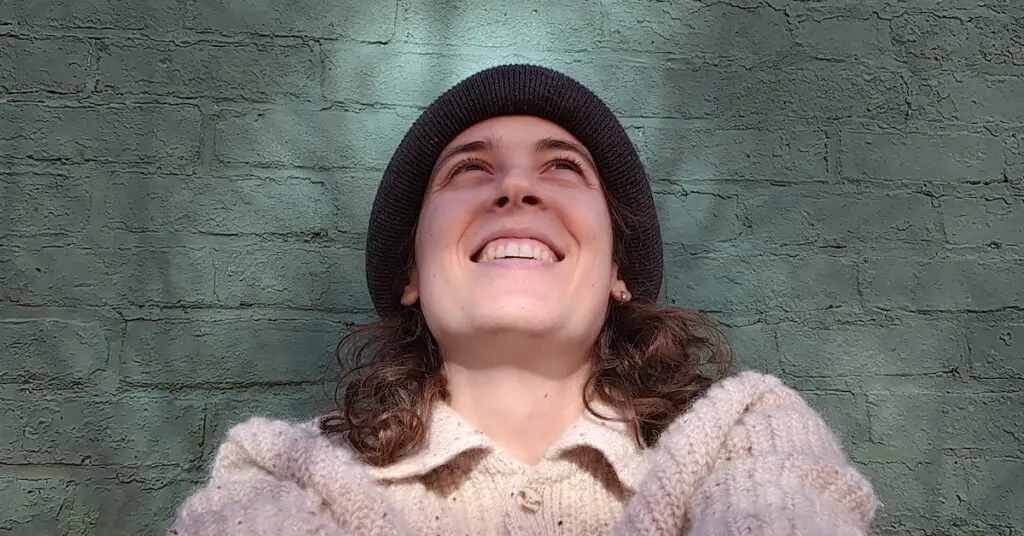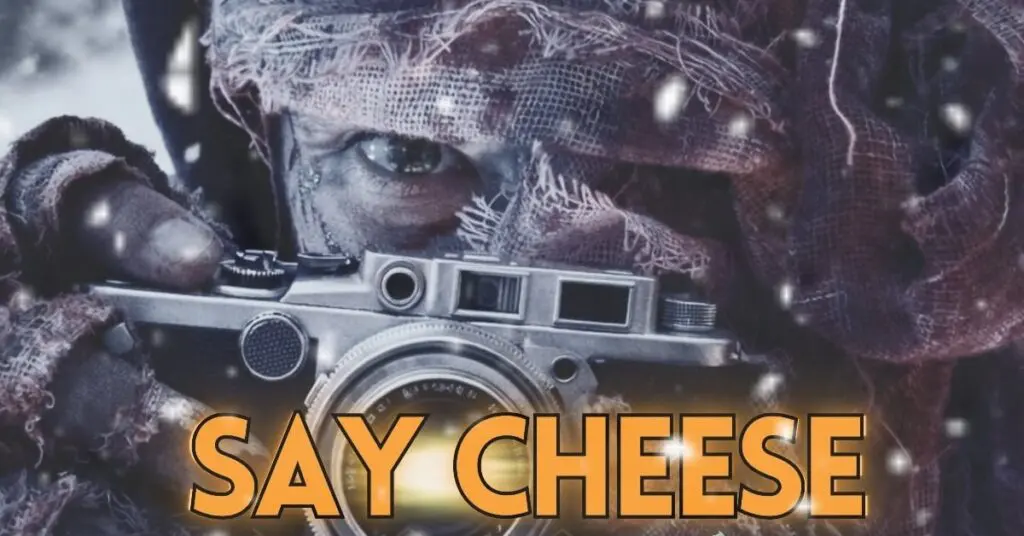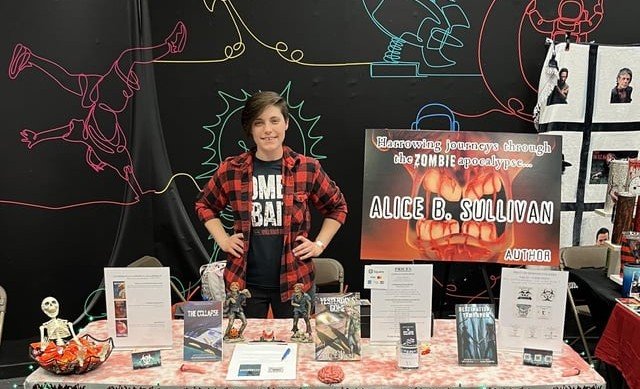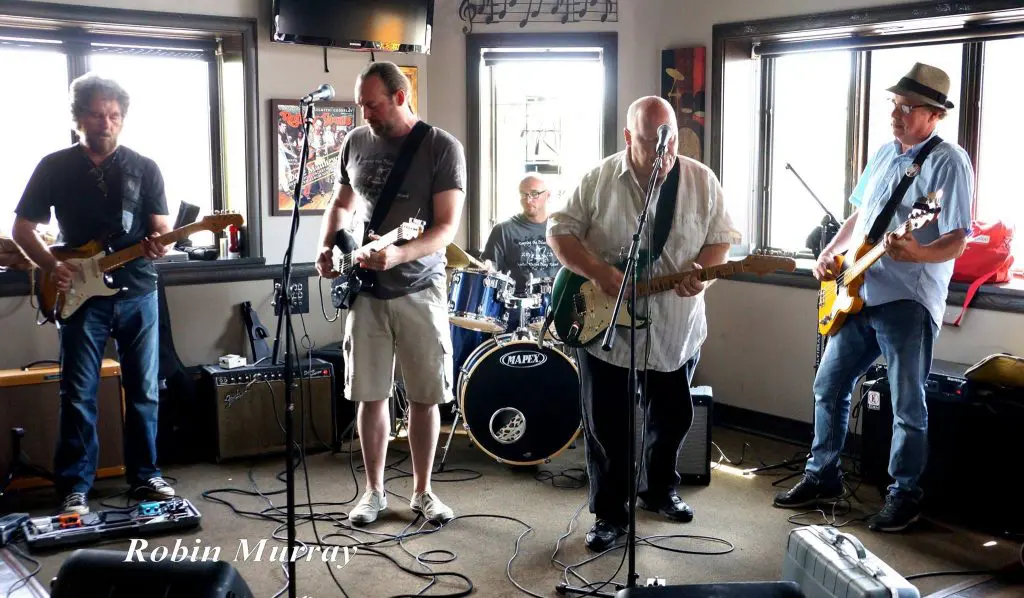Skeeter Creek – A Change in Perspective
By Staff on February 5, 2019
This article was written by Paula Marks.
One of the biggest country music fans I had ever met friended me on Facebook soon after I opened the mic for the first time on WGNA seven years ago. Sue Bogucki was the biggest cheerleader for all local country bands and supported new artists coming out of Nashville.
She invited me to join her at a local venue to see Skeeter Creek, and I instantly became a SK Creek Freak. During a break in sets, I was introduced to Joe Kulewicz, the lead guitarist, who was extremely down to earth and the next day accepted my Facebook friend request.
In discussing our life experiences over time, we discovered a few significant things in common, the biggest of which was our shared desires to find our birth parents. Joe, who was born and raised in Hagaman, was gracious enough to take some time and talk about some of those experiences.
RadioradioX: When did you get bitten by the guitar bug?

Joe: I started playing casually when I was about 12. I played through high school. I took some lessons, but that didn’t go so well. I played until I was around 20, then I kind of gave it up when I got married and had kids. Then around ’97, ’98, I found my guitar again and just started messing around with it.
Then in 2001, I met another gentleman and that’s when we started Skeeter Creek. I had split with my ex wife, and that’s when I started spending more time with my guitar. My ex and I still had a good relationship and had a daughter together. The man who my ex started seeing after we broke up, and who she eventually married, (Tim Seboldt) actually became my best friend. He played instruments, and I played instruments, and that’s how we started Skeeter Creek. Skeeter Creek is actually named after a creek in West Virginia where (Tim) was from and where he used to fish in growing up.
Initially, Skeeter Creek was a bluegrass band. One of the members lived in North Carolina and once the band took off in popularity, he would fly up every weekend to play with the band. Once he left the band, Skeeter Creek moved into country music.
We were approached by a local radio station to participate in a contest at the Saratoga County Fair. The first year, we did it as a 4-piece bluegrass band, and we did OK, but didn’t place or anything. A singer from another band, who was quite arrogant, approached us and put us down and said we never had a chance of winning or anything. So it kind of lit a fire under me, and I decided the next year we were going to do it in a surprise way as a country band because nobody knew us that way. They knew us as a four-piece bluegrass band.
So we added a drummer, another guitar player, and we formed a country band just for that competition. We practiced religiously for three or four months just to beat this band, who was very well established. We went to the fair, and we won the competition that year. It shut everyone up. We did it under a totally different name. We went back the following year and won it and then went for a third year and won it yet again. At that point, we decided to switch from bluegrass to country, and the phone started ringing. People wanted to book us. It worked out better so we just rolled with it.
RRX: Skeeter Creek has been voted by many different sources as the area’s best cover band. Have you ever written your own material?
As a bluegrass band, we did perform some original material. Tim, who started with me, was a very good songwriter. We took some of that and transposed it into the country realm, and it was good. It sounded good, but we learned very quickly that when you play country at 99% of these venues, the country crowd does not want to hear originals. When we would play something original, that’s when they would go to the bathroom or to get another drink, so we ditched the original material for the most part. You have to be either an original band or a cover band. There’s no in-between here.
RRX: It’s ironic that you and I have a few things in common. One special thing is that we were both adopted and we both went on quests to find our birth parents. Your search became quite public when a local TV station picked up on your search for your birth mom. How long did it take to get leads from that publicity?
Joe: Almost immediately. Nichole Hart from News Channel 10 did a whole interview with me, and then it went nationwide. It’s amazing how far it went. People from all over the country were calling me – from California, Florida, all over- hundreds of calls in the first week. I tried to follow up on as many as I could, but many turned out to be nothing
I followed the leads for a long time. I went on what my adopted mom told me – she passed before this. Some of what she told me was true, and some wasn’t. That made it difficult. Sometimes I almost gave up because I was spending a lot of time following leads that were nothing.
Then my wife got me a membership to Family Tree. It told me the origins, but it didn’t tell me any family members names. I got nothing from that, so I let it go for about a year. Then a good friend of mine got me Ancestry.com for Christmas the following year. I sent the DNA in, not expecting anything back, but when it came back, it told me who my father was.
There it was. Prior to this, I had done more looking and followed more leads. I kind of knew who some of my relatives were, but then Ancestry told me who my aunt was, who my uncle was, and told me who my father was. That was a huge relief. We have had communication, but we haven’t met yet. He is in a rehab hospital in Florida, and I am planning to go to Florida to meet soon.
RRX: Having found my birth mother and brother, I can tell you it’s really a weird experience to finally see people who look like you and have some of the same likes and dislikes and mannerisms. We get to experience something that most people do not. We get to see the whole nature versus nurture process.
Joe: Exactly. We look a lot alike. His main interests are also playing the guitar and riding motorcycles and it’s kind of crazy how that works you know?
Me: The other journey that you have taken is the commitment to get healthy and lose weight. You are so busy with work, your family, your band. How do you fit it into your schedule?
Joe: It’s kind of a weird story why it started. Obviously I was tired of being unhealthy. My main hobby at that point was eating. I was diagnosed with diabetes. I had gone to the doctor and he said I needed to be on all these medications: insulin, glucophage and all these other things. I told him I’m not going to do it.The doctor said if I didn’t, I was on a path that could lead to my death. I told him to give me three months. If I’m not showing any improvement, then I would do it.
Well, in three months, there was considerable change. Then, at six months, there was a tremendous difference. I was then showing few signs of diabetes. A year later, I was showing no signs at all.
I had been up to almost 400 pounds and didn’t care. Eating was my hobby. A year and a half later, I was 142 pounds lighter and no signs of diabetes whatsoever.
RRX: Wasn’t one of your hobbies a motivation to lose that weight as well?
Joe: There were actually two motivating factors; one is kind of funny. Riding motorcycles again wasn’t really a thought at that moment. One of the events we play at every year is at a clothing-optional resort in the Berkshires, so we go to this nudist resort, and the first year, we played there, there were 400 people and everyone was naked except for the band. I’m watching all of these people and I’m thinking if it ever came down to it, would I have the self-confidence to do this – not that I would. I said to myself I wouldn’t. I would be a million times over embarrassed to do this because of the shape I’m in.
So I turned to the guys in the band and I said that next year, I’m going to have the confidence to do what they do – but not that I actually would. My bandmates said there was no way I could do that, but that’s when it started. That was my initial motivation.
I’m getting older now, and if I want to ride a motorcycle again, I’m going to do this. That’s what got me into the gym at 5:30 every morning. That’s what got me to go to the gym every day, twice a day, for a year and a half. As you know, time goes quick and you only get one chance to do what you want to do. And I did it. That inspired some of the other band members to also lose weight.
RRX: So are you telling me that you all actually will be naked next time you go to that resort?
Joe: Ha, no. We are booked there again, but we’re probably not going to be naked.
RRX: Speaking of the band, if you had a chance to play with any band or musician, alive or dead, who would it be?
Joe: Believe it or not, the one person I would have loved to play music with would have been John Denver. I saw him in concert maybe five or six times from the time I was 8 until I was 20. My godfather was a patron member of SPAC, and he used to take me to concerts all the time, and he had front row seats.
[Denver] just really impressed me. My mom had every John Denver album and used to listen to him all the time. Some of his stuff was some of the first songs I learned how to play, like “Country Roads,” “Sunshine On My Shoulders” and a whole bunch of other songs of his.
RRX: I know you open for some big names. Who has been your favorite band or musician to open for?
Joe: Darius Rucker and Mark Wills were two of the best to open up with. They were the best to interact with and the both have really good stage shows. But Darius Rucker spent the whole morning with us. His wife is a sweetheart and our kids all played together. It was just like we knew one another for 20 years…just a real down to earth nice guy. He may be higher up the corporate ladder than us, but he is just a really decent person.
RRX: I always like to ask musicians who they are listening to right now.
Joe: I listen to artists you don’t hear on the radio now. I like listening to some of the new stuff, but I like listening to some of the older stuff: Gary Allan, Marshall Tucker, some of the southern rock and country from the ’90s and early 2000s.
RRX: Don’t you think some of the country today is just cookie cutter?
Joe: It is. A lot of the acts I see pushed out of Nashville, a lot of these kids are very talented, but they have companies backing them and telling them “You play this, you sing this, you do this and we will make you a lot of money.” It’s all promotional. It’s definitely all for profit, trying to sell, sell, sell. They have the look, they sound decent, but that’s what you get. The whole industry has changed drastically in the last 10 to 15 years.
RRX: So what’s in store for Skeeter Creek this year? Any major shows?
Joe: We usually don’t know those until very close to the shows. There’s some talk, but nothing solid yet. We are booked out two years in advance because we do a lot of the same venues and events year after year, so we’ll be busy for sure.





 RadioRadioX
RadioRadioX